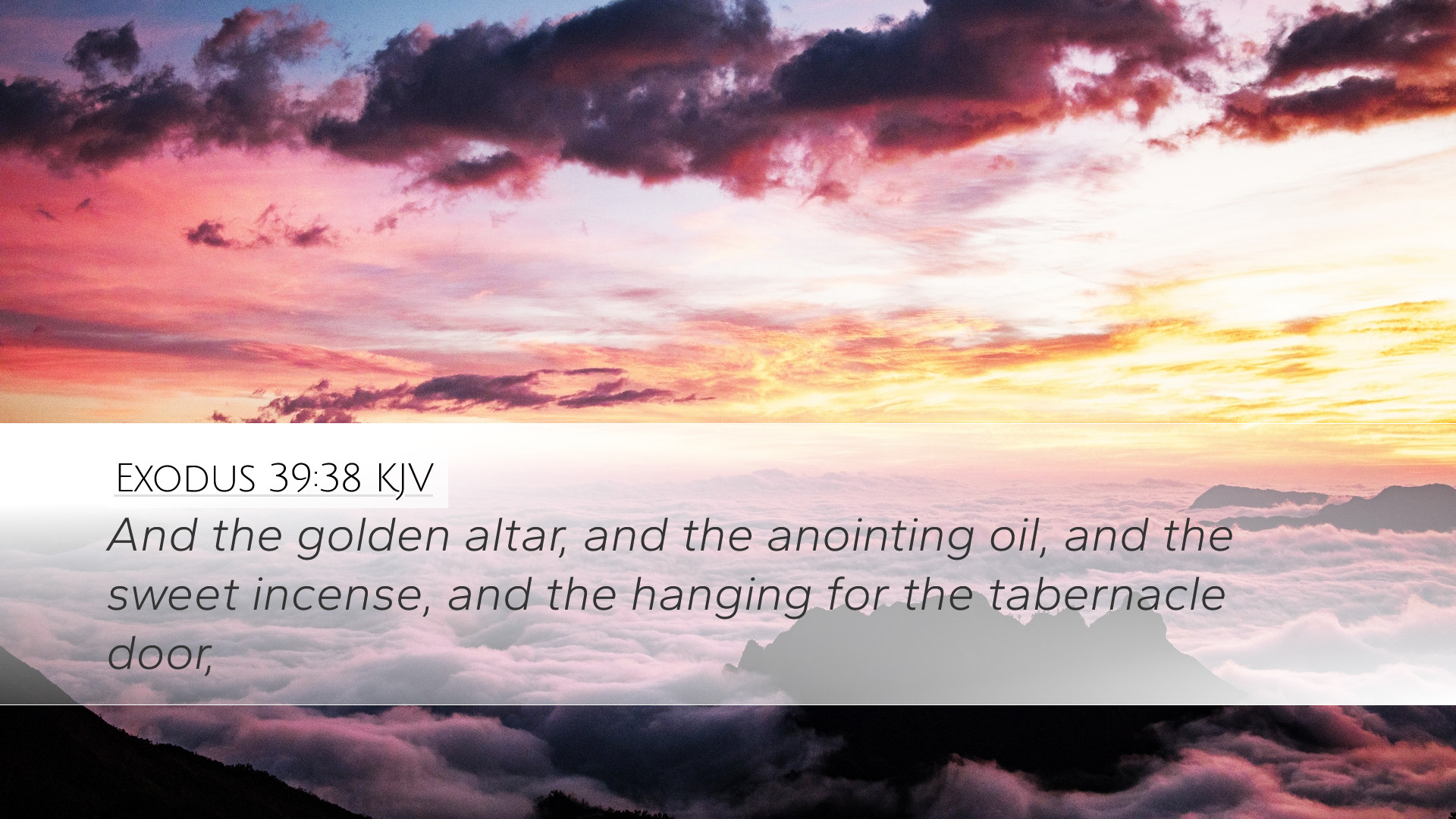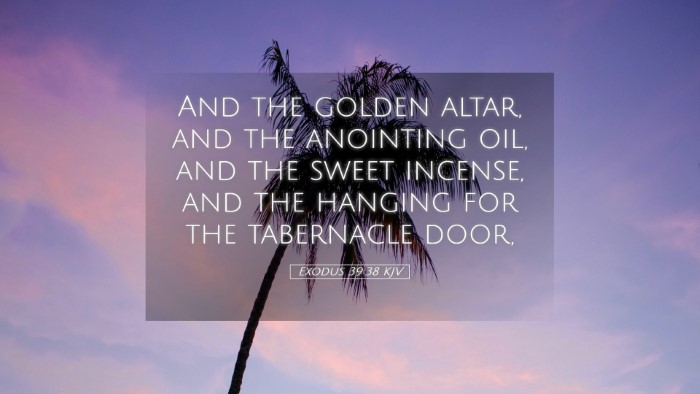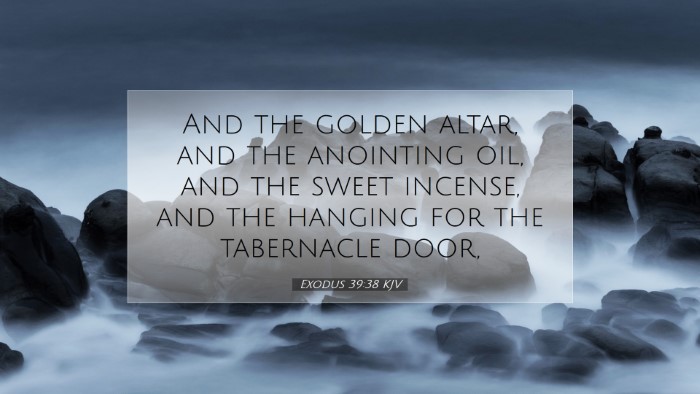Exodus 39:38 - Commentary and Insights
Bible Verse: "And the golden altar, and the anointing oil, and the sweet incense, and the hanging for the tabernacle door," (Exodus 39:38, KJV)
Introduction
Exodus 39:38 serves as a climactic conclusion to a detailed account of the preparations of the Tabernacle and its furnishings. This verse encapsulates key elements that were integral to the Israelites' worship system, emphasizing the significance of the golden altar, anointing oil, sweet incense, and the hanging for the tabernacle door.
The Golden Altar
Function and Symbolism:
The golden altar, also known as the altar of incense, holds a unique position among the instruments of worship. Albert Barnes emphasizes its role as a mediator between God and man, representing the prayers of the faithful rising to heaven. This altar was positioned before the veil, symbolizing the separation from the Holy of Holies yet serving as a bridge for intercession and worship.
Adam Clarke elaborates on the significance of incense in worship. Incense, when burned, creates a fragrant smoke that ascends, mirroring the spiritual ascent of prayer. The consistent offering of incense illustrated the perpetual need for communion with God.
Anointing Oil
Purpose and Significance:
Anointing oil was crucial in the consecration of the priests and the sacred objects within the Tabernacle. Matthew Henry notes that the oil represents the Holy Spirit's presence, which sanctifies and empowers the anointed to fulfill their divine roles. This act of anointing was not merely ritualistic but signified a transformation expected to occur in the lives of those set apart for God's work.
Furthermore, Adam Clarke reflects on the precepts in Leviticus regarding this oil, where specific ingredients were prescribed, illustrating a divine formula meant to ensure authenticity in worship and service.
Sweet Incense
Symbolism and Use:
The reference to sweet incense refers to the specific blend prescribed by God. Albert Barnes emphasizes that this fragrant offering symbolizes the prayers of the people and represents the pleasing aroma to God. The sweetness of the incense signifies the joy and sincerity of the worshiper’s heart as they approach God.
The prophet Malachi echoes this sentiment in Malachi 1:11, where the incense offered to God is portrayed as a pure and delightful act of devotion. The burning of incense in the temple was not just a sensory experience but also a celestial communication with the Almighty.
Hanging for the Tabernacle Door
Function and Purpose:
The hanging for the tabernacle door served both a practical and symbolic purpose. Matthew Henry notes that it provided a physical barrier that separated the sacred from the common, reinforcing the concept of holiness associated with the dwelling place of God. This veil or hanging represented the glory and authority of God, reminding the Israelites of the seriousness with which they must approach Him.
Albert Barnes further comments that the entrance to the Tabernacle was always to be regarded with reverence, indicating that access to God is precious and not to be taken lightly.
Theological Reflections
The elements from Exodus 39:38 intertwine to narrate a profound theological narrative concerning God’s desire to dwell among His people. The altar of incense signifies prayer, the anointing oil denotes consecrated service, and the sweet incense symbolizes devotion and divine connection. Together, they elucidate the essence of worship, calling believers to reflect these elements in their daily spiritual practices.
The design and components described in this passage reveal God's meticulous care for structure in worship, indicating that worship is not arbitrary but ordained. Each detail illuminates the importance of approaching God with reverence, intentionality, and purity of heart.
Practical Applications for Today
-
Prayerfulness: Like the altar of incense, believers are encouraged to cultivate a prayer life that continually rises to God.
-
Consecration: The practice of anointing can inspire contemporary believers to seek the Holy Spirit's guidance and empowerment in their ministries and life choices.
-
Reverence in Worship: Just as access to the Tabernacle required respect and dignity, modern worship should be approached with a heart that honors God’s holiness.
Conclusion
Exodus 39:38 is a rich verse encapsulating foundational elements of worship in the ancient covenant community. By reflecting on the golden altar, anointing oil, sweet incense, and the door's hanging, modern readers are invited into deeper theological understanding and practical application. This scripture encourages believers to honor God’s presence, to approach Him with reverence, and to ensure their hearts, like the altar, are continually lifted in prayer.


